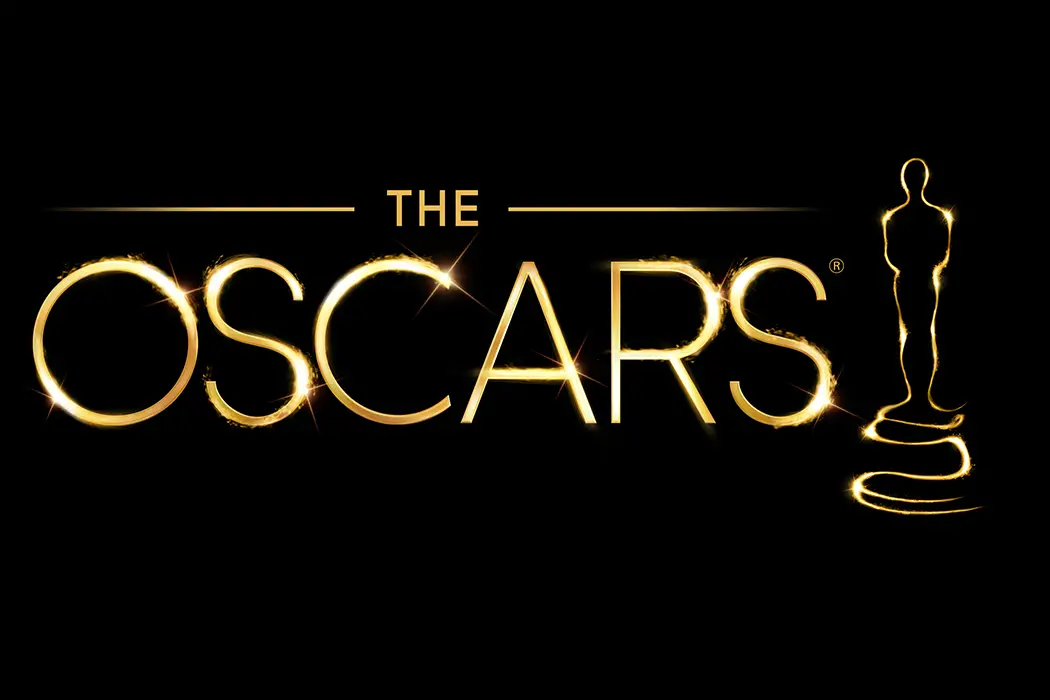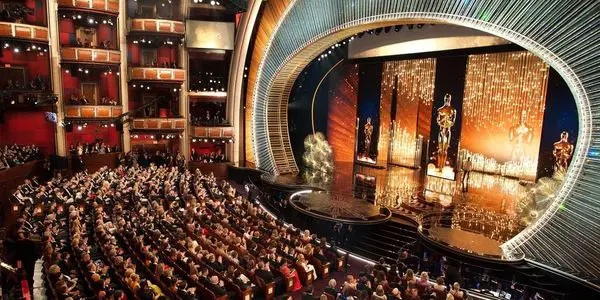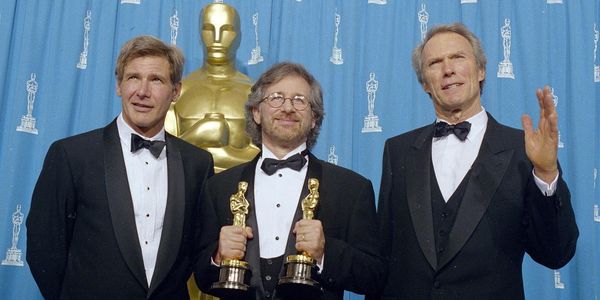The Oscars Keep Trying To Put A Bandage On A Broken Leg

Soham Gadre is a writer/filmmaker in the Washington D.C. area.…
The 91st Academy Awards ended in a disappointingly typical manner as Peter Farrelly‘s sugar-coated race relations drama Green Book won Best Picture. In a year where many of the other winners like costume designer Ruth E. Carter for Black Panther and legendary director Spike Lee for Blackkklansman brought moments of joy in finally receiving their due, in the end, the Oscars were still the Oscars. In an ideal world, we would have a definitive answer for all that is great in cinema. Who really are the best actors, actresses, directors, and cinematographers? What really is the BEST PICTURE? Alas, the Oscars, like every other voting body that has ever existed, can never hope to achieve objectivity.
But what this ceremony and the slew of preposterous events that preceded it indicate is something much more broken than just picking winners that people don’t agree with. It indicates that the Academy lives in a fantasy state of mind where, much like this year’s Best Picture winner, they value short-sighted, simplistic solutions instead of doing the hard work to fix a show and a voting body everyone is increasingly becoming fed up with. What exactly are the priorities of the Academy? Who do they care about? Let’s take a look.
The Viewers
The Oscars have a year-by-year running metric of the show’s viewership ratings that guides their decisions in show itinerary changes. This doesn’t really have anything to do with what viewers want to see at the ceremony, but what the show’s advertising partners and ABC think viewers care about. With viewership lower than ever in the past decade (and the 2018 and 2019 shows having the two lowest ratings ever for the telecast), the Oscars have kicked their solutions-meter into high gear.
Networks believed a major point of viewer contention was the ceremony’s run-time. The airing of the show on Sunday night before the beginning of the work week, from 8:00 pm to approximately midnight depending on how long the speeches go for, was never in the Academy’s advantage. The show strategically placed major categories scattered evenly from beginning to end to keep viewers enticed enough to get through the awards they most likely didn’t care about.

Cutting runtime off the Oscars was attempted in several different ways, the most insulting of which was the 2009 elimination of the Academy Honorary Award from the broadcast. As if to willingly spit at cinema’s past itself in favor of granting viewers ten extra minutes of sleep on a Sunday night, awards for lifetime achievement gifted to some of the greatest film artists to ever live were relegated to an untelevised ceremony called the Governor Awards. As terrible as this decision was, it wasn’t met with enough backlash for the Academy to rescind it. Of course, it did almost nothing to cut the runtime off.
In a very appropriate manner, the Academy fell ass-backward into a solution through its own complete incompetence. After Kevin Hart dropped out of hosting contention following the controversy surrounding offensive tweets he made about gay people, the Academy failed to find anyone to step up in place of him, leaving the Oscars to go hostless for the first time since 1989. What ended up happening was the lack of host inadvertently cut a solid hour from the show’s usual run-time, eliminated unnecessary patronizing gags like Jimmy Kimmel parading “regular people” to come to meet movie-stars, and made the ceremony seem leaner and much more serious. It seemed like a proper awards ceremony, not a variety show that’s trying too hard. But don’t expect them to stick to this great format, the Oscars are almost instinctively prone to messing themselves up.
Speaking of messing up… one of the most egregious acts of desperation for a ceremony that was terrified of fading from relevance was the expansion of the Best Picture category from five to ten films. The decision followed the outcry over Christopher Nolan’s blockbuster film The Dark Knight being snubbed for a Best Picture nomination in 2009, but it also had a lot to do with the 2008 ceremony, where No Country for Old Men won Best Picture, receiving the lowest ratings in the show’s history at 32 million viewers.

The goal was to increase the chances of blockbuster movies getting nominated for Best Picture and thus, draw in more eyeballs. This, of course, had no sustained positive effect, with last years Oscars ratings hitting a new all-time low of 26 million. Instead, as many articles warned from the beginning of the change, the expansion of the category oversaturated the field and lowered the level of exclusivity of being nominated for the award. That’s how we end up with Bohemian Rhapsody and Vice getting Best Picture nominations.
If that wasn’t insulting enough to the Best Picture category, a decade later in 2018, the Oscars announced the possible inclusion of a Best Popular Film category. Resulting in instant joke material on social media, the decision was rescinded a few months later but kept open as a future possibility. Was this another terrible attempt at getting more eyeballs? Who lobbied for this?
The Studios
The “Best Popular Film” award is something I still can’t think or say without laughing to myself. It is one of the most brazenly stupid things the Academy could implement as a pander to viewers. As if the box-office numbers in the billions aren’t in themselves a reward for a film’s popularity, there needs to also be a gold statuette to go along with it? The reality is that the inclusion of the category has hardly anything to do with viewers at all. What it really is, quite obviously, is a pander to studios. Specifically, the studio that broadcasts the ceremony on its own channel.
It’s not a coincidence that this idea for a Popular Film Oscar comes at a time when Disney, the owner of Oscar host-channel ABC, has a near monopoly on movie franchises playing at theaters and may feel the need to compete against prestigious and artistic fare that dominates it at awards ceremonies simply for the sake of not leaving any stone unturned and because they have the power to. Many have already quipped on the idea of a billion-dollar media conglomerate needing an award to give itself recognition in the industry, but the terrifying reality is that the Oscars did, in fact, entertain this crony proposal with a straight face.

Don’t get me wrong, I know the Oscars’ hands aren’t exactly clean when it comes to political tactics of production houses. One of the ceremony’s darkest moments was the nasty, much reviled 1998 Best Picture race between Shakespeare in Love and Saving Private Ryan, where Harvey Weinstein ran a smear campaign against Spielberg’s war film and basically set the ugly precedent for Oscar lobbying thereafter. The Popular Film Oscar doesn’t ring as lobbying so much as a shady business deal. A literal rigging. It creates a handicap for movies which don’t need one and is essentially a movie-awards equivalent of having an affirmative action program for rich white students. So, who gets the short end of the stick every time?
The Artists
This all boils down to the question at the heart of the Oscars’ identity crisis: Do the Oscars even care about artists? The Academy Awards are supposedly a representation of the diverse talents that exist within the film industry. It’s a show which claims to celebrate the achievements of members of the film industry, from big stars and producers to unknown animators and documentarians.
The inception and history of the Oscars paint a different story, however. The show was conceived as a front for a union-busting elite members club called the Academy of Motion Picture Arts and Sciences, started by Louis B. Mayer (founder of MGM Studios). The awards that were doled out were essentially bribes to artists to work with certain producers who were members of AMPAS. The founding principles of the Oscars were business and money oriented, and very anti-labor.
Over the years, the AMPAS has changed and artists unions have gained more power in Hollywood (though still not enough). It is all the more concerning, then, that even with nearly a hundred years of (incremental) progress in favor of artists, the Academy showcased that it had no value for the people working in cinema, by gleefully announcing that they would award editing and cinematography categories during commercials, with make-up and live action shorts also being deemed disposable. With social media allowing a more vocal backlash than was possible in 2009, this decision was almost instantaneously reversed. That it was even considered an option was an obvious sign of The Oscars priorities towards its corporate partners over the artists who make up its own industry.

All of these issues are even more disheartening when you consider the racial and gender disparity that has plagued the ceremony, and concurrently, the lack of representation of marginalized artists in the industry. The biggest opportunity provided to the Oscars for real introspection and serious fundamental change of the show’s fabric was the rise of #OscarsSoWhite. It was a moment where the Academy could, through analyzing its own history, create a blueprint for the industry as a whole on how representation and the valuing of labor matters.
Out of 456 total Best Director nominees, only 5 of them have been women (that’s around 1%). Out of 3,043 total Oscars ever handed out since the ceremony’s inception, 39 of them have gone to black artists (that’s also around 1%). These numbers don’t bode well at all for a ceremony which would want to award artists for their hard work.
The grim reality is that the Oscars will only really care about fixing their own lack of diversity if it means it will get them more viewership numbers. It’s the reason why a blockbuster like Black Panther was so willingly accepted as a Best Picture contender while the much smaller If Beale Street Could Talk never stood a chance. The initiative of bringing in more diverse members into the Academy from around the world has hardly changed the Oscars’ mentality when it comes to voting for major awards like Best Director, which yet again features no women nominees, and Best Picture, which again features artistically risk-averse feel-good cinema that aligns with Hollywood’s tone-deaf approach to politics.
It’s Corporations’ Biggest Night!
For a ceremony which over the years has been called out, justifiably, for being a vapid display of self-congratulations and preposterous wealth of Hollywood’s finest, one would expect “cinema’s biggest night” to at least boast some sense of artistic purpose shallow as it may be.
Instead, the string of chaos we’ve seen over the past months, from the announcement of a “Best Popular Film” category to the inability of the ceremony to secure a proper host, and finally the decision (and eventual recantation) of cutting out major technical award categories like cinematography and editing, all point to a ceremony which doesn’t really justify an existence beyond being a money-pipeline for its corporate partners. Maybe, then, the Academy has stayed true to its founding principles after all.
What are your thoughts on the Academy Awards?
Does content like this matter to you?
Become a Member and support film journalism. Unlock access to all of Film Inquiry`s great articles. Join a community of like-minded readers who are passionate about cinema - get access to our private members Network, give back to independent filmmakers, and more.
Soham Gadre is a writer/filmmaker in the Washington D.C. area. He has written for Hyperallergic, MUBI Notebook, Popula, Vague Visages, and Bustle among others. He also works full-time for an environmental non-profit and is a screener for the Environmental Film Festival. Outside of film, he is a Chicago Bulls fan and frequenter of gastropubs.













